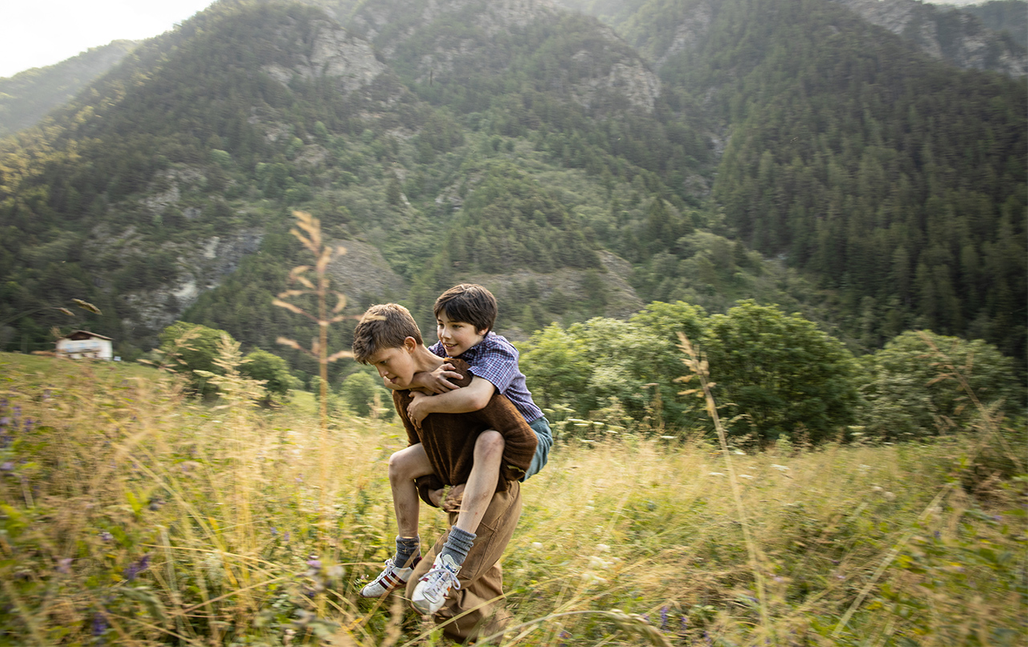
Le Otto Montagne, Felix Van Groeningen and Charlotte Vandermeersch at the heart of an unswerving friendship

In Le Otto Montagne (The Eight Mountains) - and for their first selection In Competition - the Belgian filmmakers Felix Van Groeningen and Charlotte Vandermeersch explore the bonds that unite childhood friends over time. A film where the mountain stands out as a majestic backdrop to this unswerving relationship, portrayed on the screen by Luca Marinelli and Alessandro Borghi.
The film is an adaptation of a novel by Paolo Cognetti that came out in 2016. What was it that won you over?
Felix Van Groningen: This story really moved me because it evokes everything I had wanted to talk about at the time. I was at a time in my life where I felt a need to devote myself to something pure and without cynicism.
Charlotte Vandermeersch: I thought it was nice to try to answer this question: what does "being friends" mean? For me, this film also evokes the fact of growing up and of finding one's place in the world.
Why did you choose to adapt the novel in its original language?
F.VG: It is so authentic that shooting anywhere other than in Italy would be senseless. In the book, you feel that the author knows the characters he's talking about. Charlotte and I went to the Aosta Valley to meet Paolo Cognetti and see the places he describes.
C.V: We also went to live for a few months in the village chosen for the shoot to capture the essence, that of its inhabitants, and to perceive the beauty of this place, which also has an isolated, dark and dangerous side.
You have chosen two actors who have a very vertical physical temperament, like the mountains in the film…
F.VG: They needed to be physically present. We first chose Luca, then we started to build around him. Alessandro arrived and we realised that there was an incredible alchemy between them. They're friends and had already shot together, but we didn't want to take these reflexes for granted. This natural alchemy had to also work for this film.
“Because of the verticality of the mountains, we chose to extend the frame upwards.”
You never depict the mountains in a way that is picturesque…
F.VG: The choice of the frame was an important moment. With Ruben Impens, the cinematographer, we wondered what the best aspect ratio would be to film in. We concluded that because of their verticality, we needed to extend the frame upwards. By choosing a more vertical ratio, we were also able to count on a more active participation from the audience.
How was the shooting?
F.VG: There was this determination to make a film as real as possible, and to do so, the entire team had to live it. For example, we spent the night in a mountain hut at 3,000 metres of elevation to film daybreak. It was beautiful and pure, but very frustrating, too, because the mountains dictate everything: the weather or even the light. We thus had to be flexible because it's also this aspect of the mountain that the film had to depict.
A word on the music, composed by the Swede Daniel Norgren?
C.V: He's an artist who lives in the middle of the forest and writes his songs while walking in the woods. It made sense to ask him to collaborate in the film. We thought that he'd be able to understand what we were looking for and that he'd be able to bring his vocal and instrumental world to our story.


